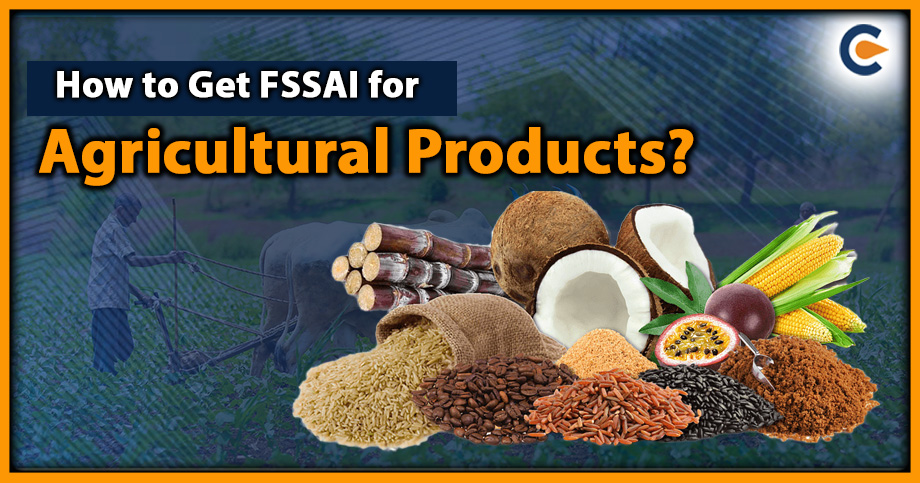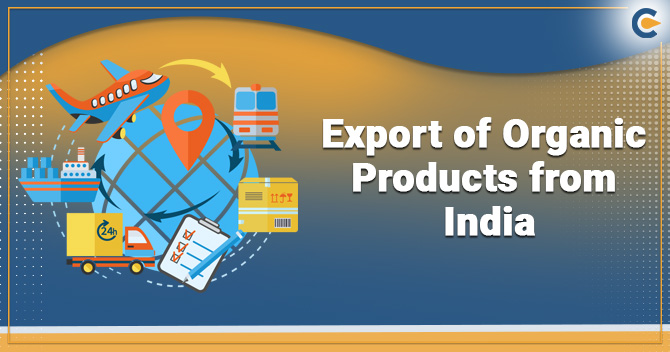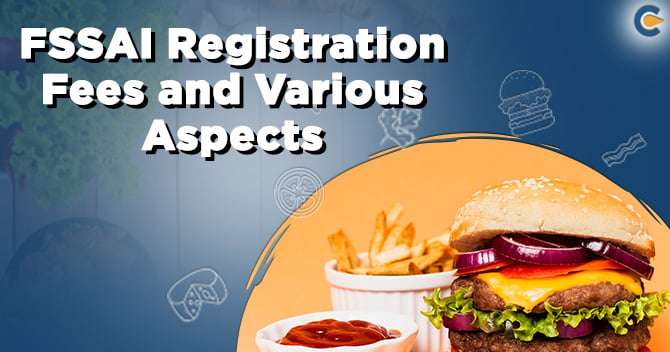The Food Safety and Standards Authority of India, often known as FSSAI, is a government organization, as is common knowledge among all of us. This authority ensures that all actors in the food industry, including those engaged in the production, processing, storage, distribution, sale, and import of food, conform to a set of standards and norms that have been scientifically established. These standards and norms ensure that food is clean, up to par, and safe for human consumption. The FSSAI uses two different kinds of registration processes, which are known as license s and registrations respectively. A license is often required of individuals who are engaged in the food business but do not meet the requirements to be considered a petty food company and, as a result, do not satisfy the requirements for registration. It is common practice to require registration of individuals who run even the petty food companies. Scroll down to check more about FSSAI for Agricultural Products.
Why Is Registration With The FSSAI So Important?
Every owner of a food firm that manufactures, processes, retails, or distributes food is required to either register with the FSSAI or get a license from the organization. FSSAI License, on the other hand, differs from FSSAI Registration in that it mandates that FBOs get the appropriate registration or license, depending on the nature and scope of their business.
Every food product is given a unique registration or license number that has 14 digits. The end purpose of this registration process is to increase the level of responsibility that FBOs have for ensuring the security of food goods.
What Kinds Of Things Do Agricultural Goods Include?
The Indian economy is built on agriculture. According to government statistics, 50 percent of the working population in India is involved in agriculture. It accounts for about 17 and 18 percent of the national revenue. It is reasonable to draw the conclusion that the country’s agricultural sector serves as the economic backbone of the country.
Crops, fruits, vegetables, seeds, animals including cattle, sheep, pigs, goats, and horses, as well as byproducts like milk, eggs, and horticultural items, are all examples of agriculture products. As a consequence of this, it was not limited to the plants found exclusively in agricultural settings.
Why Is It Very Necessary To Get FSSAI For Agricultural Products?
Every business and industry in India that deals with food is required to register with the Food Safety and Standard Authority of India (FSSAI), the government agency in charge of regulating the quality and safety of food. The Food Safety and Standard Authority of India (FSSAI) accreditation verifies that companies in the food industry adhere to all relevant standards. Production of food, distribution of food, packaging of food, retail sale of food, importation of food, and exportation of food are all included in this category. FSSAI registration or certification is a requirement for firms in the Food Industry.
Consumables are agricultural products. The Food Safety and Security Act of 1990 (FSSAI) necessitates the possession of a food license in order to legally acquire, sell, or distribute agricultural goods. Because of this, getting a license from the FSSAI for agricultural products is essential in order to sell or distribute any kind of agricultural product.
After getting a certificate from the FSSAI for agricultural products, you and your company will profit from a number of additional advantages, in addition to the obvious legal advantages.
- Make sure that the name you choose for your agricultural goods company is one that is immediately associated with reliability and honesty.
- If you register your company with the FSSAI, you will have a lot easier time in any legal processes that include your firm. If you don’t register with your company, you will have a much harder time.
- Adding additional sites for the sale of agricultural goods is a simple process.
- Customers will gain confidence in your dedication to quality if you prominently display the FSSAI licensing mark.
- The application procedure for loans and recruiting investors might both be simplified with the assistance of an FSSAI license.
A Step-By-Step Application Process of FSSAI for Agricultural Products
Certificates may be issued by the FSSAI, and each one will fit into one of these three categories. Capital investment requirements apply. The following is a list of the three different kinds of permits:
- Basic FSSAI Registration
- Registration on a state-by-state basis for licenses issued by the Food Safety and Standards authority (FSSAI).
- Central level Applications for Food Licenses
- Basic FSSAI Registration Requirement:
If your yearly income for your agricultural goods business is less than Rs. 12 Lakhs, then your company is regarded to be of a small size. For the vast majority of little establishments, a basic food permit is all that is required. Form A registration is necessary for the first phase of FSSAI registration. If your firm makes more than Rs. 12 lakhs in yearly sales, it is required to register with the Food Safety and Standards Authority of India (FSSAI) at the state level in order to continue selling food to the general public.
Included In The Needed Documentation Are The Following:
- Initiation into the Role of Resident
- Photos, passport size
- The Specifics of the Transaction
- Conformity with the regulations of the FSSAI
- Obtaining a Food Establishment Registration Number by Submitting an Application to the State FSSAI
A State food license is required if the yearly revenue generated by your agricultural product business is between Rs. 12 Lakhs and Rs. 20 Crores. Form B must be completed in order to register your food company with the FSSAI.
Documentation Needed and Required:
- An agreement regarding the tenancy or lease of a business property.
- Identity with a photograph of the owner, such as a driver’s license, a voter identity card, an Aadhar card, or a passport is required.
- Documentation proving that the company is registered, including the GST number or trading permit
- The MOA and the AOA
- A license is the authorization granted by a public authority, such as a municipality, town, city, or state, to lawfully engage in commercial activity. Pick anyone.
- The Specifics of the Transaction
- FSSAI certification declarations
- Central Food Safety and Standards Administration (FSSAI):
You are required to apply for a Central food license if the annual value of your agricultural product sales is more than Rs. 20 crores. If the yearly income of your business is more than Rs. 20 crores, you will be forced to upgrade from a food license issued by the state to one issued by the central government. Fill out Form B to submit an application for a license to operate a food outlet.
Documentation Needed and Required for FSSAI for Agricultural Products:
- An agreement regarding the tenancy or lease of a business property.
- Identification with a photograph of the owner is required (for example, a passport, driver’s license, or Aadhar card).
- Certificate of Incorporation, Registration for the Goods and Services Tax, or Business License are required documents for starting a new business.
- The Code of International Trade
- The MOA and the AOA
- A license is the authorization granted by a public authority, such as a municipality, town, city, or state, to lawfully engage in commercial activity.
- If relevant, a list of companies that have partnered with you.
- The Specifics of the Transaction
- FSSAI certification declarations
Obtaining a Certificate of Compliance from the FSSAI for Agricultural Products:
- Establish a plan for your company’s future.
- Find out how much money you made in the last year.
- Find out which permissions are necessary to market your agricultural goods in accordance with the law.
- We ask that you fill out an application form and provide all of the necessary paperwork.
- Putting down money as a deposit
- Put up a request for it.
If you want to avoid getting into trouble because of inaccurate information on your application, you should verify everything twice. It is possible that FSSAI registration would be cancelled. If the form needs to be modified, then the form needs to be modified. To return the form with any desired amendments, you have 30 days.
The process of obtaining a license from the FSSAI might take anything from 15 to 45 days. You are obligated to keep an eye on the process and attend to any problems as soon as they appear.
Renewal and Modification of FSSAI for Agricultural Products
License Renewal:
Your FSSAI Registration/license must be renewed prior to its expiry. If you do not successfully renew your application by the specified deadline, you will be required to submit a new application for an FSSAI license in order to maintain your ability to run a food-related company.
License Modification:
You are free to make any changes to your license that you see necessary. You have the ability to modify the information included in the FSSAI license as required by submitting an application for modification. Other license conditions may be changed without incurring additional fees.
Appeal for Cancellation or Suspension of License
The State Food Safety Commissioner will consider appeals from Food Business Operators (FBOs) who are unhappy with the notification of required adjustments, the suspension or revocation of their license, or both. The decision made by the Food and Safety Commissioner is final. An appeal from an FBO may also be heard by the Food Safety Appellate Tribunal or the High Court in the State or Territory.
How Much Does It Cost To Get A License From The FSSAI?
During the process of filling up the FSSAI registration form, the applicant or FBO is further required to pay any relevant costs. The charge for registering with the FSSAI does not vary regardless of whether a new license being sought, an existing license is being renewed, or an existing license being amended. The following fees are assessed by the FSSAI for the two kinds of registration:
- The first registration fee for FSSAI is Rs. 100.
- FSSAI State License – Cost between Rs. 2,500 and Rs. 5,000 (Depends on the type of business carried out).
- An FSSAI Central License costs Rs. 7,500.
What Are The Benefits Of FSSAI For Agricultural Products?
There are several legal advantages available to the food sector, including the following:
- Increases the awareness of the brand. It is possible that the adoption of the FSSAI mark will increase consumer brand recognition as well as favorability.
- To ensure that food is safe to consume, rules founded in science need to be developed.
- The presentation of new regulations that are in line with the standards of an international organization. Developed with the purpose of providing evidence-based research for policymaking.
- There is a significant potential for business growth and development.
Repercussions of Not Being in Compliance
Everyone who has been registered or given a license by the FSSAI is required to comply with the norms and regulations that were specified in the FSS Act of 2006[1], which was passed in 2006. The food safety inspector assigns a score of 1 out of 5 stars, with the final grade depending on the amount of compliance.
- Compliance (C)
- Noncompliance (NC)
- Partial Compliance (PC) In accordance with Section 32 of the Food Safety and Standards Act of 2006 and on the basis of the facts presented above, the Food Safety Officer (FSO) may issue an improvement notice. If the license does not comply with the improvement notice, it is possible that he could lose his license.
What Are The Difficulties And Limitations That The FSSAI Faces?
- Inadequate resources available, for example, for conducting analyses of food. In India, there are approximately 1500 independent stations, yet the National Accreditation Board for Testing and Calibration Labs only recognizes 87 of them (NABL).
- Inadequate testing of food items was carried out at national food laboratories and facilities that were suggested due to a lack of knowledgeable employees and efficient food testing equipment.
- The fact that state licensing and law enforcement agencies are understaffed and inadequately resourced has a negative impact on the nutritional health and safety rules that are in place.
- The organization is just restricted in nature and has not been successful in assuring the safety, purity, or cleanliness of food production in any way.
- The regulations of the FSSAI only mention 377 different products, although the laws of other countries cover about 10,000 needs. In addition to that, the database simply does not undergo regular updates.
- The financing available to the FSSAI is insufficient for it to keep up with the ever-expanding scope of food regulations. Moreover, there are no laws that have set mechanisms for the control of food and health, which is a mostly subjective problem.
- Because of the burdensome and drawn-out nature of the regulatory procedures, the post approvals for things coming from either the Food safety and standards authority or the British Standards Institution have been held up for more than a year.
- Shipments of food products that were acquired abroad often run into difficulties at the ports as they wait for certification from the body in charge of food safety and standards. This may be the result of very insignificant issues, such as incorrect product labelling on packaging that does not adhere to the FSSAI’s subjective requirements. These standards seem to be distinct from the internationally accepted best practices.
- Disagreements between the ministry responsible for food production and the food regulators further hinder the work of the Food Safety and Standards Authority of India (FSSAI).
- According to a report prepared by the CAG, the FSSAI has not yet formulated the rules and regulations that would be necessary to exercise control over the different activities.
- Also, the CAG came to the realization that “well over fifty percent of cases, as validated in Audit, had licenses being provided partially on basis of deficient documentation.”
Conclusion
Every operator in the food industry in India, including transporters, wholesalers, manufacturers, caterers, and so on, is required to register with the Food Safety and Standards Authority of India (FSSAI) and obtain one of three types of registration depending on their annual income and the nature of the activities they engage in. It is really necessary and beneficial for the FBO and the persons who are going to consume those products and utilize them in their everyday life effecting the health of them and their families. It is undoubtedly essential to have regulatory check of FSSAI on the food business.
Read Our Article: FSSAI Registration For Agricultural Products: Outlining The Main Details











